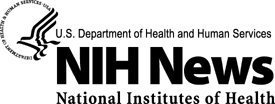|
American Indian Health: A New National Library of Medicine Website
The National Library of Medicine, a part of the National Institutes
of Health, announces a new Web site to address the health concerns
of the 4 million Americans who claim American Indian or Alaska Native
ancestry. The site, "American Indian Health," is at <http://americanindianhealth.nlm.nih.gov>.
Because special populations have different health needs, the Library
has created several specialized sites, for example, for Asian Americans,
those living in the Arctic and far north, senior citizens, and Spanish-speaking
Americans. (These are all available from <http://www.nlm.nih.gov/databases>.)
American Indian Health addresses the special needs of this population.
Research shows that Native Americans are 2.6 times more likely to
have diabetes as non-Hispanic whites of a similar age. American
Indians also have a greater mortality risk for tuberculosis, suicide,
pneumonia, alcoholism, and influenza than the average population.
American Indian Health brings together pertinent health and medical
resources, including consumer health information, the results of
research, traditional healing resources, and links to other Web
sites. Much of the information has been assembled from other National
Library of Medicine resources such as PubMed and MedlinePlus.
"The National Library of Medicine is interested in reaching
out to populations with special needs," said Donald A.B. Lindberg,
M.D., Library director. He notes that, for Native Americans, the
NLM has a history of attending local powwows and making health information
available during those events.
The National Library of Medicine, the world's largest library of
the health sciences, is a component of the National Institutes of
Health, U.S. Department of Health and Human Services.
|

